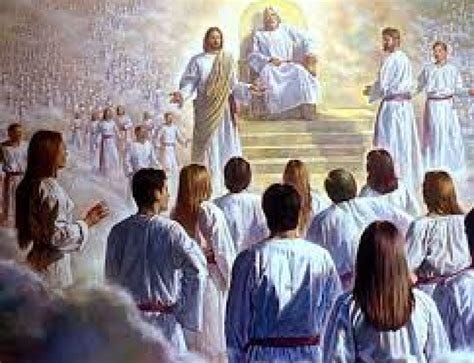This last part of the Natsarim series, revolved around the topic of judging people. It is probably the topic where the outspoken Natsarim show their “saltyness” before all else and of course, this does not sit well with most people. Not one bit.
And it is usually here where the accusers put on a hypocritical attitude and tries to say to the Natsarim; “Judge not …” while doing exactly that themselves in the very same breath (judging the Natsarim) without any Holy Spirit to guide them.
This is the passage in the bible, which strangely , the wicked seem to have learned at least two words from …
Do not judge, and you will not be judged. Do not condemn, and you will not be condemned. Forgive, and you will be forgiven. Give, and it will be given to you. … For with the measure you use, it will be measured back to you. …
Why do you look at the speck in your brother’s eye, but fail to notice the beam in your own eye? … You hypocrite!
First take the beam out of your own eye, and then you will see clearly to remove the speck from your brother’s eye.
(Luke 6:37-42, BSB)
One way of angaging the wicked hypocrites that use this phrase, is to have them recite the rest of the verse and the context of it and lead them to realize how judging works and that it requires the Holy Spirit.
The context of this passage is important. Yahusha is talking about judging enemies, forgiving enemies, and lending to enemies. And we are not to expect them to return our generosity (6:35). In this, Yahusha was deeply critical of the prevailing form of Judaism in the first century as it had lost its moorings and was no longer recognizable as the worship of the Old Testament. While having all the external forms, and in many ways was more zealous (or maybe more demonic) than former generations, Judaism was no longer a way of serving Yahuah that flowed from grace but rather a religion of self-righteousness and judgementalness.
Woe to you, scribes and Pharisees, you hypocrites! You are like whitewashed tombs, which look beautiful on the outside, but on the inside are full of dead men’s bones and every kind of impurity.
(Mattai / Matthew 23:27, BSB)
Yahuah condemns all rash judgments since we cannot instantly know the motives of other men's actions, and therefore have no right to pass a sweeping condemnation. True judgments must be cautious and merciful, and forgiving to those who have trespassed against us. Rash judgments or judgement outside of the Holy Spirit and judgment passed with drama a sure sign of Satans pride, many times disguized as victimhood.
Notice also that we on one hand are talking about everyday judgements between people, by human standards and the human level of filth, and on the other hand righteous judgements passed based on the law of Yahuah and His perfection.
In the context of the law of Yahuah, the passage is clearly giving the message that judging others for something, requires that you do not share in unrepented sinning in that regard yourself, because Yahuah will assure that we in Yahusha’s and His Judgment of us, receive as we have given. “… For with the measure you use, it will be measured back to you. …”
Do not be deceived: God cannot be mocked. A man reaps what he sows. The one who sows to please his sinful nature, from that nature will reap destruction; the one who sows to please the Spirit, from the Spirit will reap eternal life.
(Galatians 6:7-8, BSB)
It is simple. The law applies in the natural world (sow few seeds, reap a small harvest) and in the spiritual (sow to the sinful nature, reap destruction, sow to the Spirit and reap eternal life). It applies with judgmentalness and forgiveness. It also applies with giving and receiving. It is not how it reandomly happened to work between people. - It is how Yahuah designed His creation.
Sadly the false and Satanic advocates of the prosperity gospels, of “law of attraction” and “get what YOU want NOW” have learned of this fundamental construction and have deviced a way to misuse it to benefit their Egos and personal wealth before leading others to the cross and an individual relationship with Yahuah.
People that fears the judgment by Yahuah’s standard, are also the ones most vocal and hypocritical, and who will say “Judge not …” to a born-again believer who has been delivered by the Holy Spirit. And the attack is usually made on the person delivering the message because they either do not understand who is talking (the Holy Spirit) or they want to reduce the judge from being Yahuah to being just a bigoted man, in order to be able to defeat them.
They do not realize that they are judging by lowly human standards and are speaking only for themselves.
Looking to the lowly ideas and ways of fallen man, the wicked and lawless have no logically nor morally consistent support for their position what so ever. - And NO, emotional outcries and violence from them or the mob they belong to, does not qualify to being perfect enough (!) any more than anything made or done by humans can earn them salvation.
So, it's wrong to tell people that they are sinning? -Of course not. If you ask this question back at the wicked, they usually realize their folly. But of course, a mob will instead likely roar back “YES!!!” without realizing their hypocricy. - SO am I sinning by telling people that they are sinning? -No, certainly not.
But the bible requires the believers to abstain from actively passing judgements on the fallen, until Yahusha arrives.
“I care very little, however, if I am judged by you or by any human court. In fact, I do not even judge myself. My conscience is clear, but that does not vindicate me. It is the Lord who judges me.
Therefore judge nothing before the appointed time; wait until the Lord comes. He will bring to light what is hidden in darkness and will expose the motives of men’s hearts. At that time each will receive his praise from God.”
1 Corinthians 4:3-5
But in regards to those who call themselves “Christians”, the Bible commands us to confront any brother or sister to save them from destruction. See for instance (Matthew 18:15) (Luke 17:3) (Galatians 6:1) and (James 5:19).
“Moreover if thy brother shall trespass against thee, go and tell him his fault between thee and him alone: if he shall hear thee, thou hast gained thy brother.”
Matthew 18:15
Let those among the fallen who have a decently functioning conscience judge themselves and the rest who are too corrupt to have a functioning mind will not be capable anyway to receive Yahusha in their hearts. Salvation comes from hearing the word of Yahusha. So, telling people of the law an simply pointing out the reality of peoples living, is not judgment. That is not the same as passing sentencing of people to restitution, payments, whiplashes or stoning (for example).
But the modern person usually does not even want to be reminded of the reality of their situation and so they call such reminders “judgments”, in an effort to silence the believer from stating the reality at all.
And NO, people do not like being “judged” - me included. It is not pleasant to have to look into the mirror and see the reality of our physical, mental and spiritual deficiencies and plagues. But to become cured, you need to humble yourself and take the medicine. And in order to become humiliated and want the medicine, you need to first see and accept your sickness. But while most people face up to their own faults and filth, some are persistent in their hypocricy and remain oppositional and in persistent denial even as the truth is plain to see for all around them. They do so likely out of fear and guilt about some persistent sin of their own or someone close to them.
Most of the "gotcha" questions from the wicked to a Natsarim around judging are focused then on judgment based on the old law in the old testament context and especially the laws that declare the stoning of disobedient children, adulterers, and those who disobey the Shabbat. Of course worst case examples are used to falsely indicate a norm in an attempt to sway the masses to see the Natsarim position as too radical. And matters of life and death must not be treated lightly as a black-or-white judgement. That is the way of the Pharisees, not the way of Yahuah.
But let us look into that challenge (stoning), which only seem daunting at glance but actually is very clearly shown to us in the bible and by Yahusha. And if ever we wonder how we should approach judicial cases with the severest of penalties, we should look to our Hamashiach for guidance - again putting Him first and second.
In the episode of the adulterous woman, when asked to order the stoning of her (Yohanan / John 8), Yahusha surprised the Pharisees by turning the question back on them, saying:
“Let him who is without sin among you be the first to cast a stone at her.”
(Yohanan / John 8:7, BSB)
The “without sin” here requested by Yahusha the Greek "ἀναμάρτητος". Yahusha was asking the witnesses if they were truly eligible before the law to testify in the immediate case. He was not asking them if they were perfect. That is not a requirement to be able to be a judge. There is only one person ever who has been perfect; Yahusha himself.
The term "without sin," indicates the general sinfulness of men and would have been better translated as "competent to testify” (James 1979). The question was if they themselves had ever been guilty of the same kind of sinning (adultery or fornication). But they all left, which is understandable, because according to biblical law, the witnesses would be the ones doing the stoning and if they were false or unjust witnesses, then they would in fact be making themselves guilty of murder :
The witnesses, by casting the first stones, accepted the onus of the responsibility; in the event of further evidence establishing the innocence of the (now deceased) accused, and thereby the false testimony of the witnesses, they would then assume the responsibility for wrongful execution, in effect murder.
(Craigie p.251)
All judgements are double-edged swords.
And under Biblical law, a false witness in a capital crime would get the death penalty(!) themselves (Devarim / Deuteronomy 19:18-20). Talk about it being a BIG motivator to not lie in testimonies or be in doubt!
Back to our example. After the Pharisees were gone, Yahusha probed the attitude of the woman, who turned out to be repentive and humble, indicating that this was not something she would be doing ever again.
“… woman, where are those thine accusers? Hath no man condemned thee?”
She said, “No man, Lord”.
“Then neither do I condemn you,” Jesus declared.
“Now go and sin no more.”
(Yohanan / John 8:10-11, BSB)
It was certainly unfair of the Pharisees to put Yahusha to the test like that. Under Biblical law, the judge would be informed of a crime by the complaining witnesses. Then the judges (Shofetim / Judges 4:5 shows that women could also be judges) would do some or all of the following, depending upon the circumstances:
call for witnesses, both direct and corroborative (Vayikra / Leviticus 5:1)
throw out the case, if there were insufficient eyewitnesses (Devarim / Deuteronomy 19:15)
cross-examine the witness testimony in order to search out the truth (Devarim / Deuteronomy 17:4, 19:18)
throw out any testimony that was either contradicted or not supported by others (Shemot / Exodus 23:1-2) (Shemot / Exodus chapters 6-8)
determine if there were enough truthful witnesses remaining to convict (Devarim / Deuteronomy 17:6, 19:15)
pronounce conviction (or acquittal), calling upon the direct witnesses to execute the sentence (Devarim / Deuteronomy 13:9-10, 17:7)
But, of course, they were not doing this because they actually needed help from Yahusha, but to trap him on a serious matter, and as expected, they failed miserably.
The core teaching here is about grace and righteousness. The woman was repentive and humble. On the other hand, the pharisees turned out to be just as bad as thay claimed she was(!) So here, Yahusha teaches that the correct attitude toward the law is humility, righteousness, grace, and mercy (all attitude and actions) and also that judging others, requires to not be guilty of the same error ourselves.
The episode also indicates that the law gives the worst-case punishments and that individual judgments are dependent on the whole scenario of actors involved. - Just like the secular lawbook and trials (!) It is also equally a ruling on the society and not just about the accused defendant. And that makes perfect sense, does it not(?)
What is the need of having a judge if the rule can only and always be the same and as hard as possible regardless of circumstance, motivation, remorse and willingness to atone and redeem?
Such a position sounds more like a manic (Satanic) witchhunt, and humanity would be long gone since the fall in Eden already, if Yahuah ever had that attitude. - Not to mention all the other trillions of sins accumulated by mankind since then!
Another insight from studying the biblical law is that it has much stricter rules of evidence than today’s secular court system and laws:
a minimum of two actual eyewitnesses are required for conviction (Devarim / Deuteronomy 19:15)
witnesses cannot be themselves implicated in criminal activity (Shemot / Exodus 23:1)
there is a threat of the death penalty for false testimony in capital crimes (Devarim / Deuteronomy 19:16-19)
the civil government is never allowed to use torture and threats of prison in order to compel testimony (implicit in Devarim / Deuteronomy 4:2 plus the fact that there is no Biblical civil penalty for failing to testify: Vayikra / Leviticus 5:1)
So, biblical law forced judges to err on the side of protecting the innocent at the expense of sometimes letting a likely (alleged) guilty go free. In other words, there was a higher risk that a murder would go free in biblical times than in today’s secular court-system. Of course, modern “Christians” and neo-Pharisees may feel this is "too lenient," but that is why Yahuah is in charge of creation and not they. Yahuah is not a cold-hearted pharisee.
And, as mentioned above, with Yahuah, love and righteousness (the law and judgment) are just two sides of the same holiness. This is the understanding that Satan does not want you to come to. Instead, he will have you either remain oblivious to the law, void of righteousness and guardrails against sin and sliding down the slope into all kinds of foul ideas and behavior, OR turned into a loveless robotic neo-Pharisee troll that keep doing his bidding. Either extreme works just as well for him because you will be just as lost to Yahuah in both cases.
So, YES, to a Natsarim, stoning is indeed a possible ruling in those cases where the law states that it is the worst-case punishment. That may sound terrible, even as all other options - including measures of combating the evil, like interventions and deliverance - has failed. There will always be the case where only the worst possible remedy fits the deed and the attitude. - Same as in the secular prisons and death-rows.
But remember then that also Yahuah will finally be judging all of his disobedient children (mankind) after having given 6000 years for them to turn from their ways and animosity towards Him. Talk about grace … Also then will the punishment be the (very!) final one.
It will happen (again), just as it was in the days of Noah (Mattai / Matthew 24:37), likley within a few years from today.
The Pharisees of (Yohanan / John 8) were hypocrites void of love for their fellow man. They kept seeking to punish ONE just to maintain the appearance of righteousness. Yet, all of them were just as guilty before Yahuah as the woman they wanted to stone to death. In this case of adultery, they did not care to judge the marriage-breaking man, her husband or guardian, or rabbi. All they really cared about was to seem righteous and regain their control and for this make an intimidating example out of her.
In conclusion, mindlessly stoning people because of mob-pressure, is likely not on top of the to-do list for any Natsarim, any more than it was for Yahusha.
Anybody who love harsh justice before mercy should consider the words of James, explaining how Yahuah will be judging them on Judgment Day:
For judgment without mercy will be shown to anyone who has not been merciful. Mercy triumphs over judgment.
(James 2:13, BSB)
Essentially, Yahusha taught us that weighing the whole context may even nullify the punishment laid out in the law entirely and might even end up in punishing someone else who is the truly guilty one. So, for every harsh potential punishment in the law, there is a sea of developments and context that must be deliberated with righteousness, mercy, and grace an no one is beyond reproach.
Is it not interesting that the legal system of the grandiose self-righteous and so very “sophisticated” humanity (on its way to becoming its own god), have NO built-in failsafe against corruption and misuse like Yahuah’s legal system does?
Instead the human system builds on the codified rule-of-the mob (known as democracy) and and to corruption of justice for the sake of bringing an alledged perpetrator down.
But then again, Yahuah’s legal system is based on ONLY Yahusha and true born-again believers being the judges, whom Yahuah, through the Holy Spirit, would be guiding and directing.
In biblical law, witness must be corroborated by others and unopposed in their testimony(!) If not, those testimonies (even if possibly true), must be legally disqualified as "vain" (Hebrew: שָׁוְא). This means that prosecutors or judges cannot cooperate with criminals or grant them immunity in order to get testimony against other criminals. Such prosecutors or judges are breaking YAHUAH’s law (they are sinning!). This setup also works against malicious or criminal testimonies (Hebrew: רָשָׁע) (Shemot / Exodus 23:1). They have to be "just" (legally innocent) in the eyes of the law, or the case will be thrown out of the court.
NO, Yahuah’s Judgment will not be the sledgehammer or mob-rule that humanity has been using. Instead, Yahuah’s judgments are more likened to a scalpel and forceps worked with precision, integrity, honesty and patience in truth, revealing the WHOLE truth (to the extent it can in fact be excavated). This to assure that any verdict is fully righteous, removing all of the “infection,” i.e consequences (if possible), disinfecting the “wound,” closing it properly, and applying love and care to its healing.
And Yahusha Hamashiach is the guarantor that the judgement will be correct.
//
References
James S.,"The Adulteress and the Death Penalty", Journal of the Evangelical Theological Society 22/1 ,March, 1979, pp.48
Craigie P. C. “The Book of Deuteronomy (The New International Commentary on the Old Testament)”, 1976, Amazon
NOTE :
This article is draws for the same studies foundation as my book "Pandemonium", available om Amazon.












